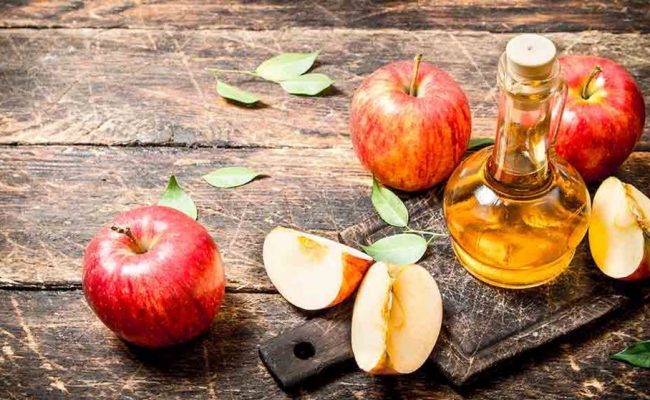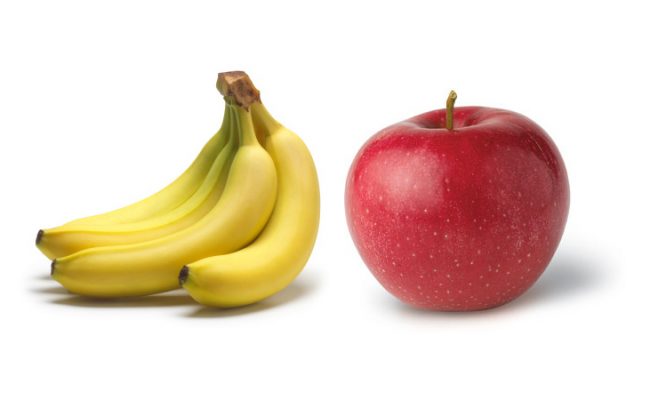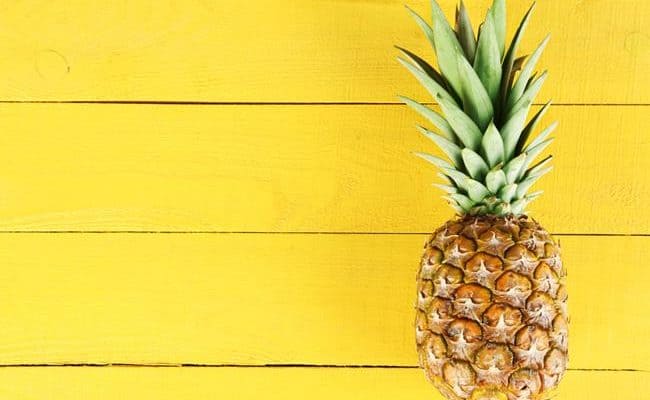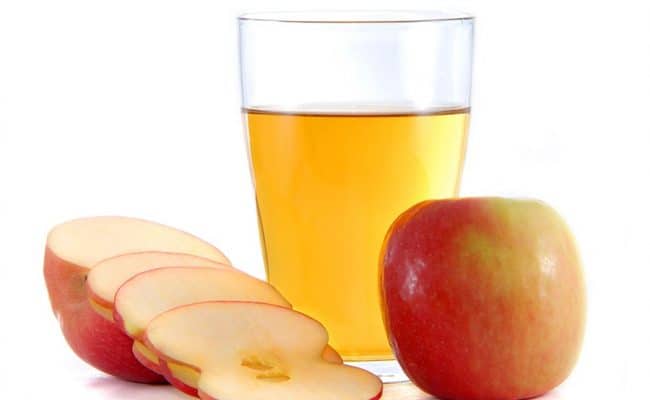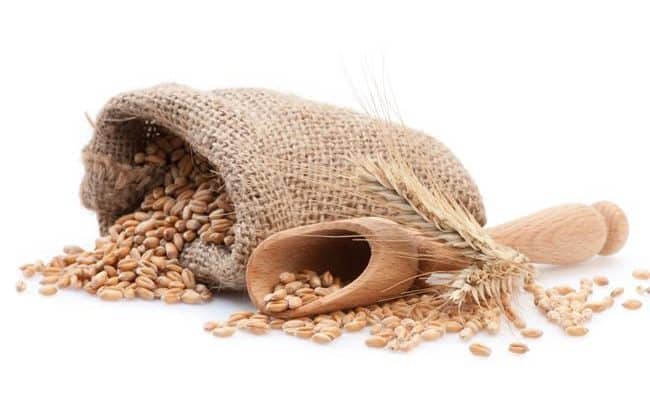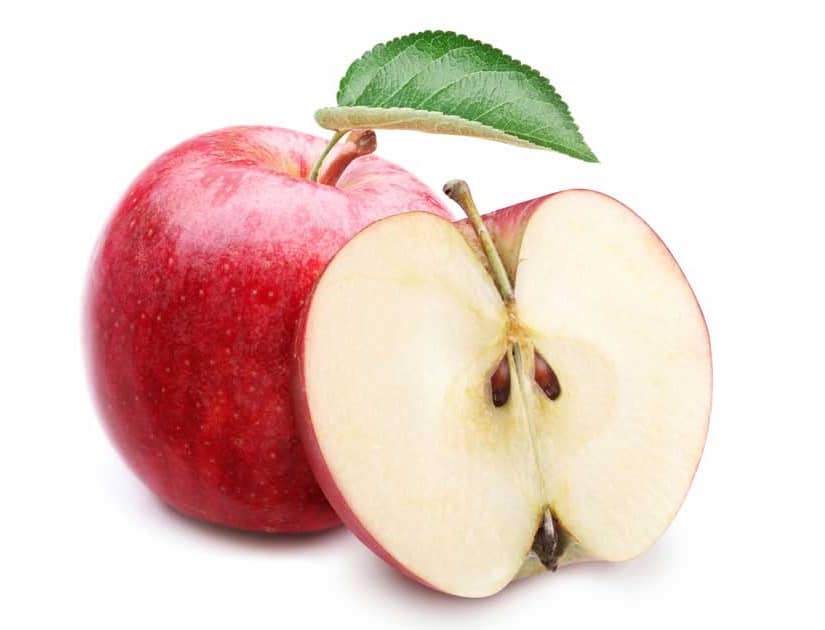
According to the World Apple and Pear Association (WAPA), apples and pears are the most consumed fruit in the EU and second most consumed fruit in the US. Eating apples is associated with promoting health, as the saying goes an apple a day can keep the doctor away.
While this saying may not have guaranteed results, eating apples provides your body with many beneficial nutrients including a good amount of antioxidants.
A 2011 review article (1) concluded eating apples and apple products are associated with having a beneficial role in lowering risk for cardiovascular disease, cancer, asthma and Alzheimer’s disease.
Besides antioxidants, apples are high in fiber. Eating a diet high in fiber may be helpful for weight loss because high fiber foods promote satiety.
This means you are more likely to feel full longer after eating fibrous foods like fruits and vegetables.
Most people eat the flesh and peel of the apple and throw away the core. Maybe occasionally you may inadvertently eat one of the seeds.
You may notice the seeds can have a bitter taste to them. This is because apple seeds contain a compound called amygdalin.
This amygdalin contains some potentially harmful substances, so it is not recommended to eat a high amount of apple seeds.
However, occasionally eating a seed or two is usually not a cause for any concern.
Why are apple seeds poisonous?
What’s in the amygdalin from apple seeds that makes them potentially harmful?
They actually contain the poisonous substance cyanide (2). Of course ingesting cyanide can be very harmful, but the amount of cyanide you would get from a few chewed up apple seeds is not a concern.
Your body can deal with this small amount of cyanide without any problems.
If you don’t chew apple seeds, they will pass through your digestive tract whole.
Only if the seeds are chewed up and broken down do they have a chance to interact with digestive enzymes and release cyanide.
A few seeds is ok, but don’t overdo it
Cyanide is a poison that can kill. However, you would need to eat a significant quantity of apple seeds to get enough cyanide for a lethal dose.
In fact, food science consultant John Fry in a LiveScience article (3) suggests you would need to eat around 143 apple seeds (equivalent to about 18 apples worth) to get enough cyanide to be lethal.
In general, it’s best to throw out the seeds and core of an apple.
If you eat a seed or two, it’s not cause for concern. Ingesting more seeds at one time is not recommended.
If someone does ingest more than a few seeds, you may want to seek medical attention. Exposure to lower amounts of cyanide, even if it’s not a lethal dose, can be dangerous.
Cyanide can affect the brain, heart and may lead to a coma (4).
Other fruit seeds that could be poisonous
Apples are not the only fruit that contains harmful compounds in the seeds or pits. Other fruits contain the same amygdalin compound that can turn to cyanide in the body.
According to an October 2015 The Guardian article (5), the fruits with the highest amount of amygdalin in their seeds are the the greengage (a type of plum) and apricots.
Other fruits that contain lower amounts include: cherries, peaches, plums, pears and nectarines.
Unlike apple seeds, it is much less likely you will accidentally ingest a plum or apricot seed because they are bigger.
Is appleseed oil poisonous?
Oil can be made from apple seeds by pressing the seeds to extract the oil. Appleseed oil may be found in beauty products for topical application, but in the future it may be used for food or pharmaceutical purposes.
Generally, the concern for cyanide in appleseed oil is very low. In fact, appleseed oil like the flesh part of the apple is high in antioxidants.
A 2013 study (6) concluded appleseed oil is a good source of antioxidants and may even have anti-carcinogenic activity.
Appleseed oil is not very common. However, if you do see it in an ingredient label for skin or hair care, it is not cause for concern of cyanide formation.
More research is needed for use as a food product, but so far research is showing appleseed oil to be high in antioxidants.
Conclusion
Fear for cyanide ingestion from the seeds should not deter you from eating apples.
Apples are a good source of antioxidants, vitamins, minerals and fiber. Throwing out the core is common practice with apples because the apple seeds, like other fruits, contain amygdalin.
When in the digestive tract, this compound forms the poison cyanide.
Eating a few seeds is not a concern; the body can handle this small amount of cyanide without a problem.
A potentially lethal amount of cyanide from appleseeds would be about equal to eating all the seeds from about 18 apples.
Appleseed oil is oil extruded from the appleseeds. The oil contains very little, if any, cyanide.
Appleseed oil actually contains a high amount of antioxidants. Although use of appleseed oil is still very minimal, it may be used more commercially in the future.
